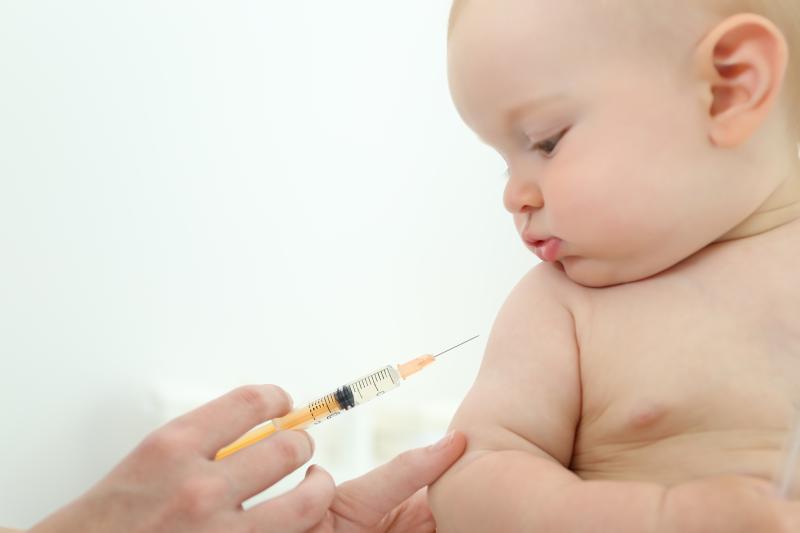
Neonatal BCG vaccination appears to reduce mortality both in tuberculosis (TB)-exposed and TB-unexposed children, according to a study, suggesting that timing of BCG administration factors in all-cause mortality.
Researchers followed neonates up to 3 years of age and inspected the vaccination card after 28 days of life. Children residing in the same house as a TB case were classified as TB-exposed from 3 months prior to case registration to the end of follow-up.
The analysis included 39,421 children, of whom 33,137 had received neonatal BCG and 3,022 had been exposed to TB. The median age at vaccination in the neonatal BCG group was 2 days. Among the 6,284 children who had not receive the BCG vaccine in the neonatal period, 5,450 were vaccinated at some point during the follow-up period (median age at vaccination, 48 days).
In the group of 3,022 TB-exposed children, 2,605 (86 percent) received neonatal BCG. Mortality rates were 12.2 per 1,000 person-years (PYs; 30 deaths during 2,462 PYs) among those with neonatal BCG and 35.2 per 1,000 PYs (13 deaths during 369 PYs) among counterparts without neonatal BCG (delayed or no BCG).
In the group of 38,145 children without TB exposure, 32,040 (84 percent) received neonatally BCG. Mortality rates were 13.5 per 1,000 PYs (533 deaths during 39,608 PYs) among those who had been neonatally vaccinated and 22.8 per 1,000 PYs (157 deaths during 6,880 PYs) among those without neonatal BCG.
Cox proportional hazards models showed that neonatal BCG vaccination was associated with reduced mortality both in TB-exposed (adjusted hazard ratio [aHR], 0.57, 95 percent confidence interval [CI], 0.26–1.27) and in TB-unexposed children (aHR, 0.57, 95 percent CI, 0.47–0.69). Children exposed to TB had higher mortality than TB-unexposed children in the absence of neonatal BCG.
The findings highlight the importance of interventions to increase timely BCG vaccination, according to the researchers.